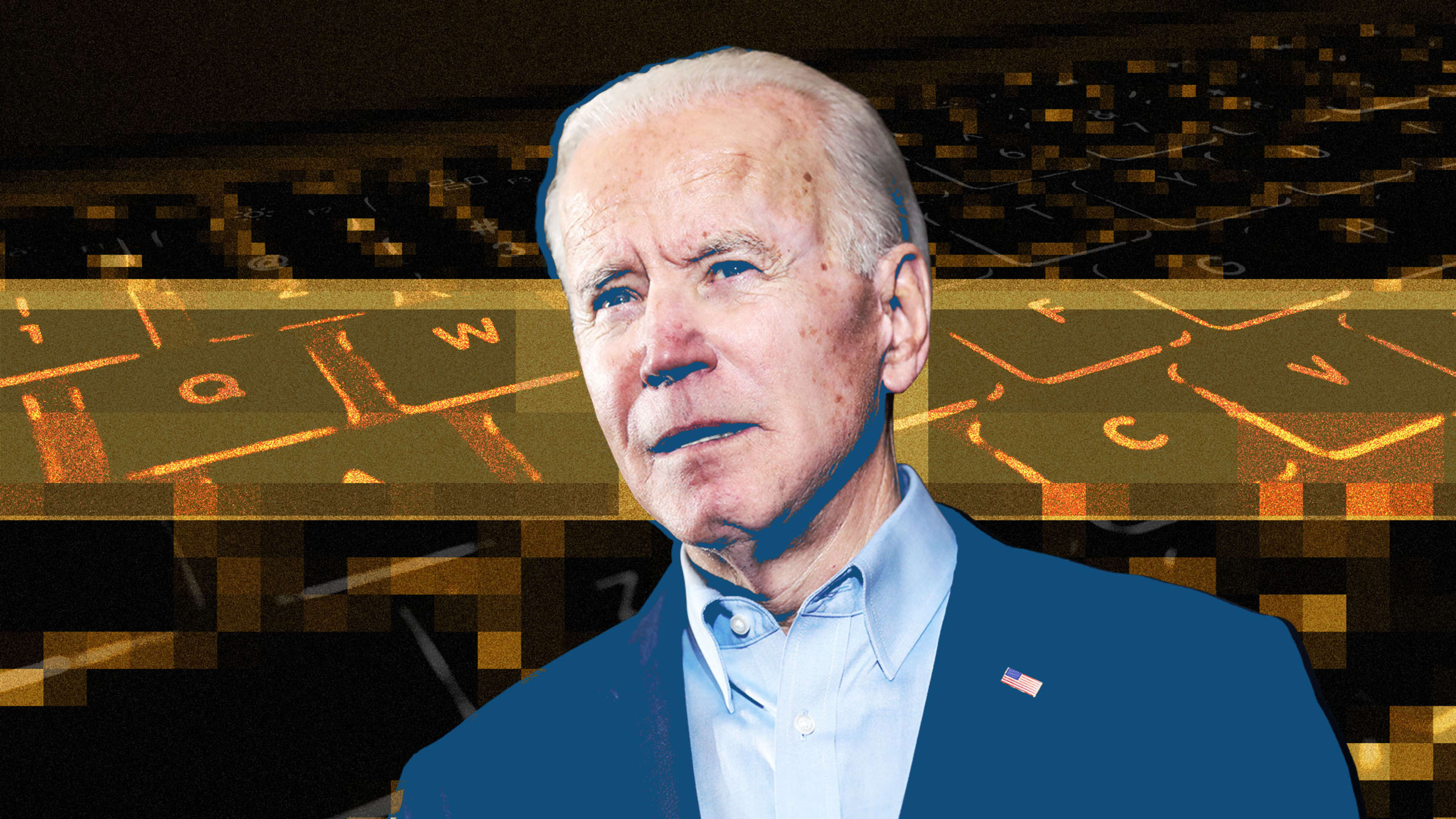There’s a growing sense of dread among Democrats as Joe Biden fumbles his way through the transition to an entirely virtual presidential campaign. Veterans of Barack Obama’s successful runs, David Axelrod and David Plouffe, recently pleaded with Biden to “embrace a new suite of virtual, data-driven tools, and creative tactics.”
Talented digital staff from two of Biden’s former primary rivals also offer the grim assessment that “the Biden campaign’s current digital footprint seems too static and packaged.” The fact that Democrats have turned to the opinion section of The New York Times to impart basic online marketing advice does not bode well for their nominee’s success online.
Biden’s digital deficit is twofold: First, the Trump campaign has been building its incredibly sophisticated online marketing behemoth nonstop since 2016. Second, Joe Biden’s 50 years in politics never prepared him for the new algorithm-driven era of digital campaigning—and so far, he has proven unwilling to adapt.
But even if the Biden campaign followed all of the impassioned cries to take digital campaigning more seriously, it would be impossible for him to overcome the Trump campaign’s online advantage. There simply isn’t enough time left until election day.
Conducting a political campaign online
All modern political campaigns are waged with technology, from web video launch announcements to sophisticated voter targeting and data modeling. But when political professionals talk about a campaign’s digital operation, they’re referring to its online marketing strategy.
“Digital” within the political context is shorthand for all of the online marketing channels today’s candidates use to reach voters: social media, email, SMS, websites, content, and apps. The digital teams on campaigns are working to create a marketing funnel to increase awareness, engage supporters, and drive them to action either through donating, volunteering, or voting.
Building an effective digital campaign takes time, and once this growth engine is up and running its effects grow like compound interest. In 2016, the Trump campaign built an online marketing operation designed to maximize the free, “top of funnel” attention Donald Trump generated. One of Facebook’s top executives wrote that Trump won “because he ran the single best digital ad campaign I’ve ever seen from any advertiser. Period.”
In campaigns, the one resource you can’t get more of is time, and an incumbent’s greatest advantage is the head start he gets in raising money, building an organization, and staffing up. The Trump team, under the leadership of Brad Parscale and Gary Coby, never turned this operation off. In the years leading up to 2020, the Trump campaign has been laser focused on building their opted-in marketing universe of email and text-messaging subscribers. Having built this massive, nearly comprehensive database of Trump supporters, the campaign will rely on them in the coming months to donate, volunteer, and vote, all while serving up a steady stream of pro-Trump content.
In the past two years alone, the Trump campaign has spent more than $60 million advertising with Facebook and Google. The bulk of that investment has been focused on building the campaign’s email list and driving online donations. Biden’s total spending during that same time period amounts to about $20 million—and Trump continues to outspend him week over week.
Trump’s online fundraising engine is a lifeline as his campaign weathers the pandemic. The latest fundraising numbers for April show Trump continuing to out-raise Biden with more than $250 million in cash on hand for the fall campaign. Joe Biden and his campaign simply don’t have enough time to build an online marketing program to outmatch the Trump machine or even significantly narrow the gap.
The algorithmic conversation
Biden is also at another disadvantage unique to campaigning today. The algorithms that command our collective attention online—and in turn shape elite political conversation—will never reward Joe Biden’s style of campaigning, which is staid, boring, and fails to generate the temporary outrage rewarded by our algorithmic overlords.
Today, most voters consume politics as entertainment. Social media platforms and the media outlets they sustain have thrust us into a never-ending reality TV show. Joe Biden and his inner circle of advisers either can’t find the channel or don’t want a starring role.
The Washington Post’s Dave Weigel summarized the differences between the Trump and Biden online marketing funnels—a combination of social media echo chambers, text messaging, email fundraising, and smartphone apps—like this: “The Republican effort was designed to keep supporters energized, inspired, and sometimes angry. The Democratic effort was genteel and gave me much less to do.”
The advice Joe Biden has been getting from other Democrats to become more engaging on social media and invest more resources for digital outreach is too little, too late. His approach to campaigning is more suited to a bygone era when journalists and party bosses—not algorithms and social media influencers—set the agenda, and building a political machine involved a lifetime of accruing favors, not an optimized online marketing operation.
Recognize your brand’s excellence by applying to this year’s Brands That Matter Awards before the final deadline, June 7.
Sign up for Brands That Matter notifications here.
